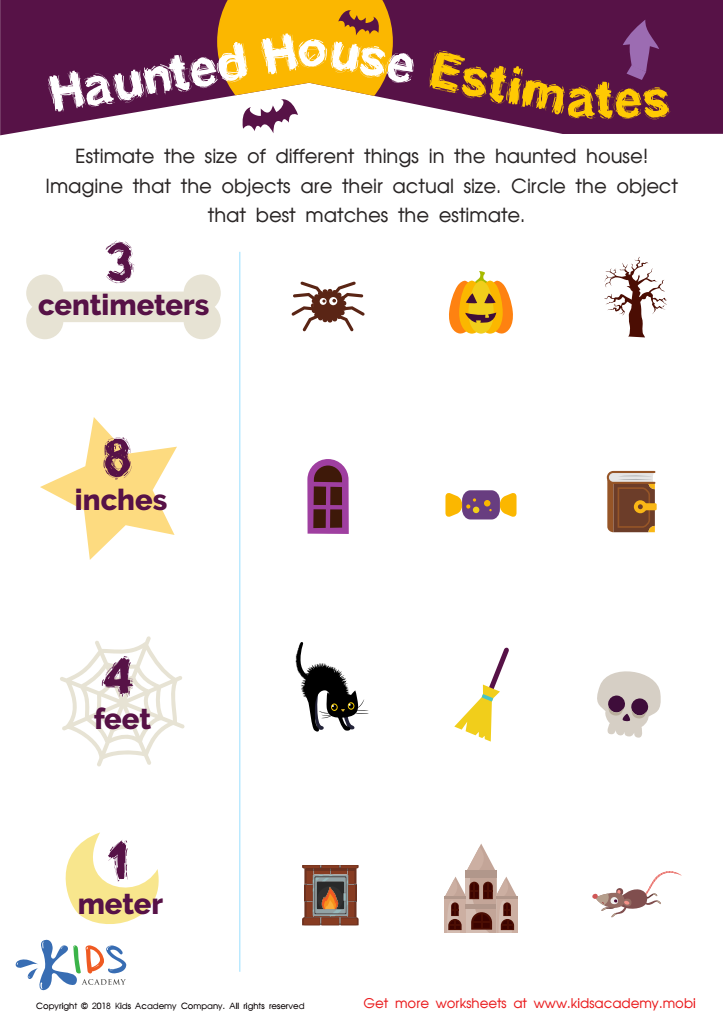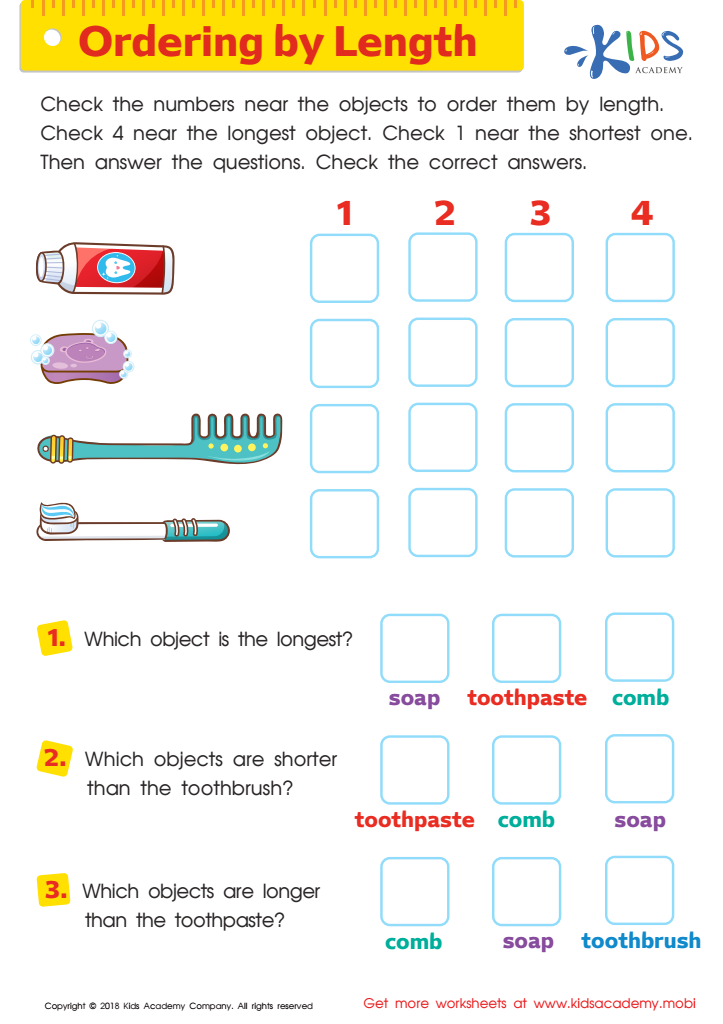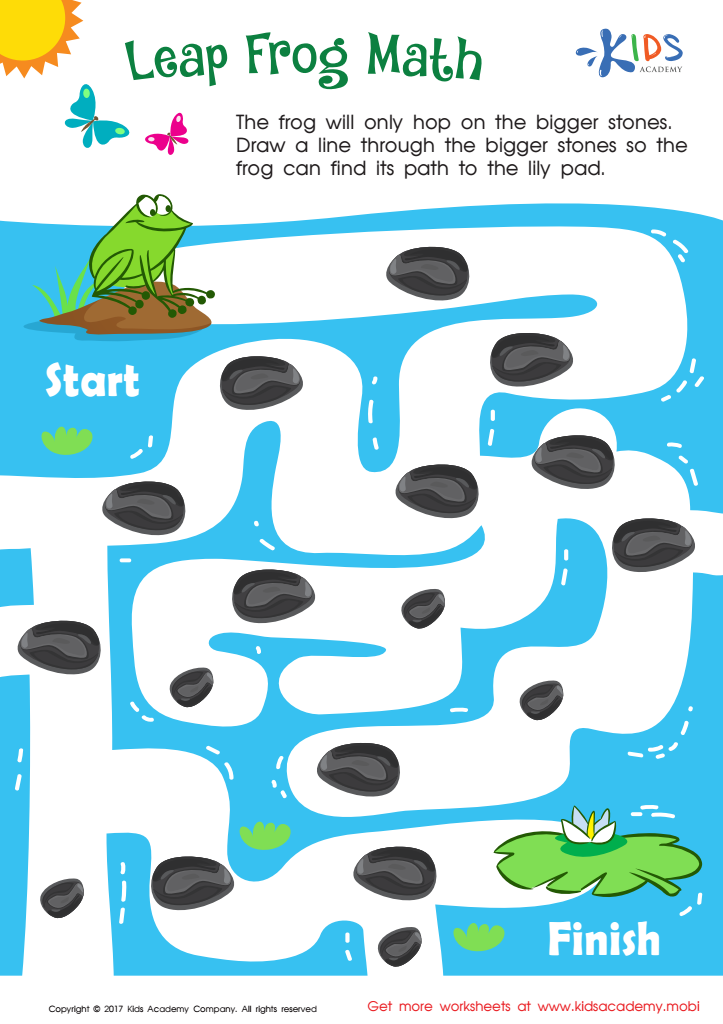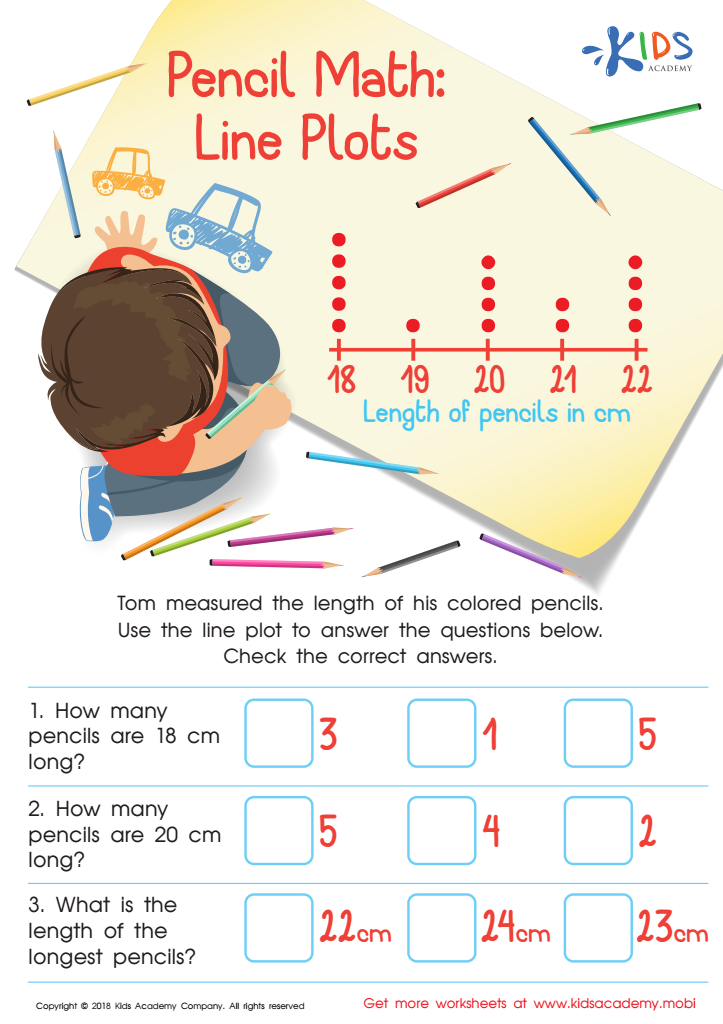Mathematical reasoning Measurement Worksheets for Ages 5-7
4 filtered results
-
From - To
Explore our engaging Mathematical Reasoning Measurement Worksheets designed specifically for children ages 5-7. These worksheets provide a fun, interactive way for young learners to develop essential measurement skills, such as understanding length, weight, and capacity. Kids will love the colorful, themed activities that make learning intuitive and enjoyable. Perfect for at-home learning or classroom settings, our worksheets encourage critical thinking and problem-solving as children compare measurements, estimate lengths, and solve real-world scenarios. Equip your child with the foundational skills needed for future math success while fostering a love for learning. Start their mathematical journey today with our comprehensive collection!


Haunted House Estimates Worksheet


Ordering by Length Worksheet


Math Puzzle Worksheet


Pencil Math: Line Plots Worksheet
Mathematical reasoning and measurement for children aged 5-7 is crucial for their cognitive development and future academic success. During these early years, children are like sponges, absorbing information and developing foundational skills that will influence their learning trajectory. Understanding measurement—such as length, weight, and volume—helps children make sense of their world. It fosters critical thinking as they learn to compare sizes and quantities, encourages problem-solving by estimating and calculating, and enhances their ability to reason quantitatively.
Moreover, engaging in measurement activities promotes practical applications of math in everyday contexts, such as cooking, shopping, or building, making learning relevant and enjoyable. When parents and teachers emphasize these concepts, they cultivate a positive attitude toward mathematics, which can reduce math anxiety and increase confidence. It also encourages collaborative learning, as children often work in groups to measure and solve problems, enhancing their social skills and ability to communicate ideas clearly.
Ultimately, supporting mathematical reasoning and measurement in young children lays the groundwork for more complex mathematical concepts later on, ensuring they are well-equipped to navigate future academic challenges. Fostering these skills early on shapes competent learners who can approach problems with a logical and critical mindset.
 Assign to My Students
Assign to My Students
















